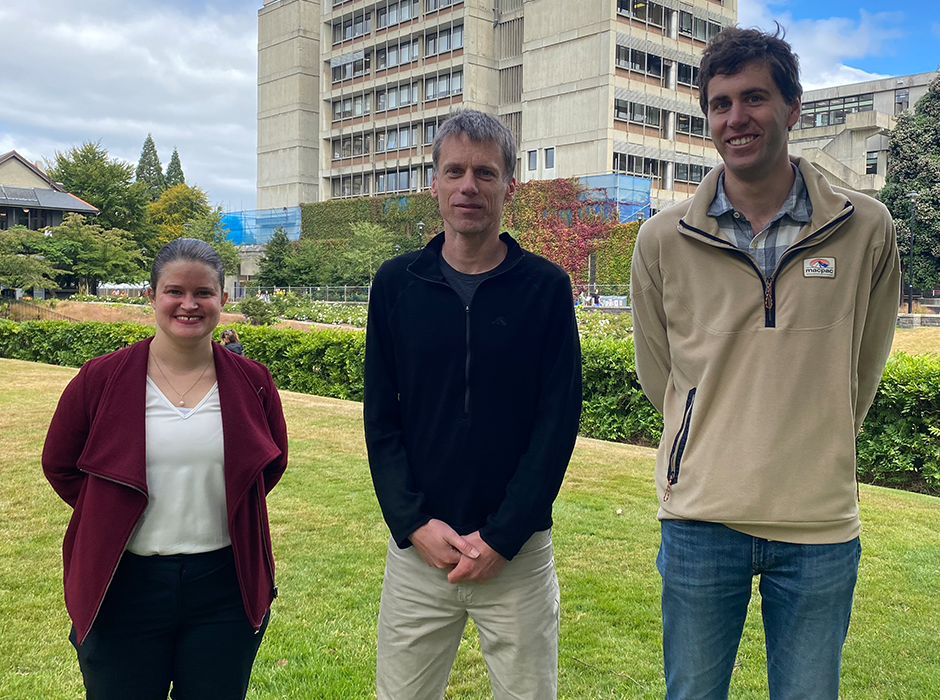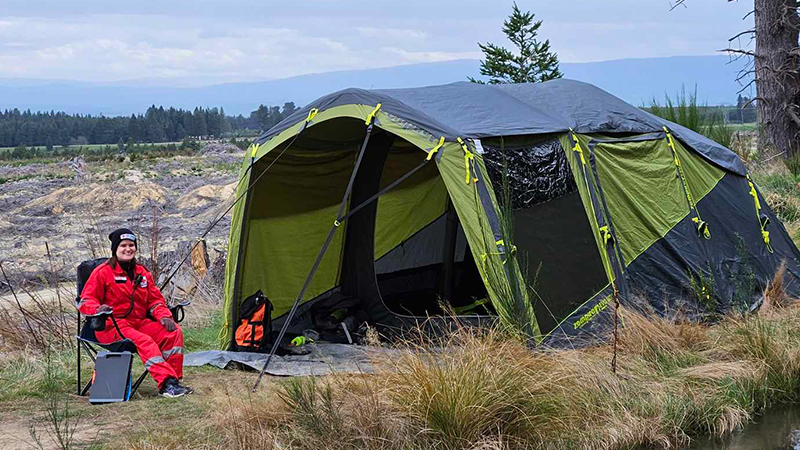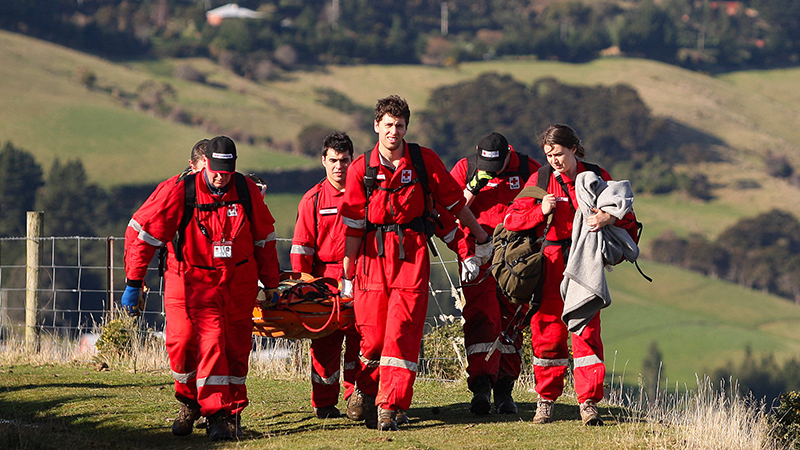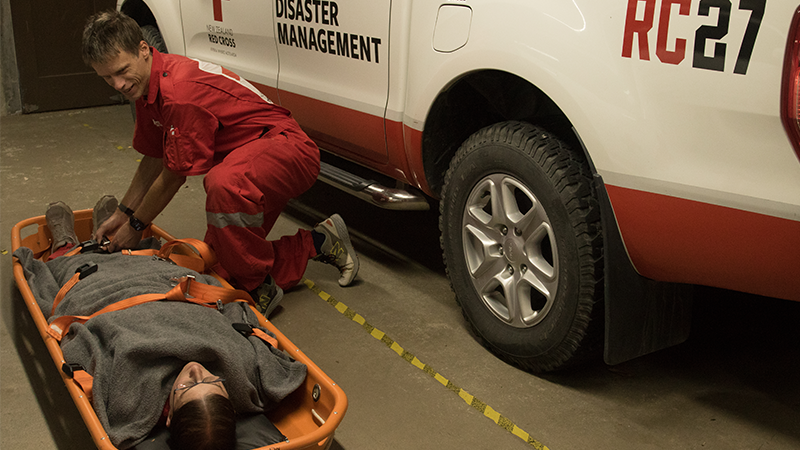
From left, Ruth Hughes, Brendan Ward and Lewis Forrester are three Otago kaimahi who volunteer with New Zealand Red Cross, supporting communities in their time of need.
Otago tauira and kaimahi are representing when it comes to the Dunedin Red Cross.
They make up around a third of the Dunedin New Zealand Red Cross Disaster Welfare Support Team (DWST) – a group of volunteers trained to offer comprehensive first aid and psychological and welfare support to communities during an emergency.
Dunedin Red Cross Response Team Deputy Team Leader William Mckenzie says Otago staff and students account for around 15 of the total 40 Dunedin volunteers, give or take.
“Otago University staff and students make up a big portion of our team - the skills, experience and passion they bring to the role really helps us support communities here in Dunedin and around the country.”
Executive Assistant Ruth Hughes, Assistant Research Fellow Lewis Forrester, and Senior Engineer Brendan Ward are three of those who give up their time to help others with Red Cross.
Ruth joined the Dunedin DWST two years ago after speaking to another volunteer - a decision she is delighted about to this day.
“Our team is made up of people from varied backgrounds and life experiences,” Ruth says. “Everyone is welcome to join and there are no prior skills required.”
“We meet weekly to train in core skills, comprehensive and psychological first aid, deployment procedures and more. Based on a Team Leader’s assessment, it can take three to six months to become operational and deployable.”
Brendan joined the organisation in 2020. While the weekly training is an on-going commitment, it also has many benefits, he says.
“Regular attendance at training helps us stay current in our skills and also builds trust in the team. When we deploy or do first aid at events, we need to know that the people we are alongside are able to do what we are there to do.”
Ruth and Brendan were both part of teams deployed to Hawke’s Bay to support flood relief efforts in the aftermath of Cyclone Gabrielle last year. On the ground, they participated in a variety of tasks including welfare checks, delivery of essential supplies, psychological first aid, and providing support at a Civil Defence Centre.
Brendan spent six days there.
“Sometimes it was going out to visit people at their residences to ensure they have access to required resources and supplies. Sometimes it was a matter of sitting down with those who walked into welfare centres, having a chat with them, or even just making them a hot drink and something to eat,” he says.
For Ruth, the opportunity to work with and help the Hawke’s Bay community was a privilege.
“I witnessed first-hand the remarkable resilience and strength of a community in crisis.”
She says balancing volunteering and working full-time can be difficult, but her advice is to “have lots of conversations with your manager and key colleagues around what might happen if you are needed for a deployment, and to always assess first whether you are in a position to be able to deploy before committing yourself".
"Deployments are not mandatory and can be worked around your existing commitments.”
Not all volunteering is about disasters though. DWST volunteers also participate in community events providing first aid support or work alongside other agencies like Land Search & Rescue (LandSAR) and the police.
Lewis has been with Dunedin’s DWST team since 2018, starting out when he was an Otago student.
While his primary motivation was to help people, then Honours student Lewis found volunteering was also a good way to “take a break from the uni headspace”.
In the six years since, he has participated in a number of callouts, from providing first aid support at a community mountain biking event to supporting a LandSAR rescue operation.
Red Cross volunteers don’t usually participate in the ‘specialist search and rescue’ side of volunteering like rugged terrain rescue, leaving that to the highly trained volunteers from other organisations, he says.
“Our focus is to look after people’s emotional and physical welfare. We provide the ring of support around a disaster, helping the community in their time of need.”
He recalls an incident at a mountain biking event up on Signal Hill, where he and other DWST volunteers had to use a stretcher to carry down a boy who had hurt his ankle.
“It’s not a big incident in the scheme of things, but it felt good to be able to help and make a positive contribution to this kid’s day.”
That ‘positive contribution’ is the why for Lewis, Ruth, and Brendan. And in joining the NZ Red Cross DWST they have also found their people.
“I’ve developed some great friendships with other members of the DWST and we regularly catch up outside of our training and events,” Brendan says.
Lewis adds: “To add a cliché, it’s like we’re one big family.”
There are 20 New Zealand Red Cross DWSTs around the country.
Find out more about the DWST and opportunities to support New Zealand Red Cross in Dunedin.
~ Kōrero by Sandra French, Adviser, Internal Communications


